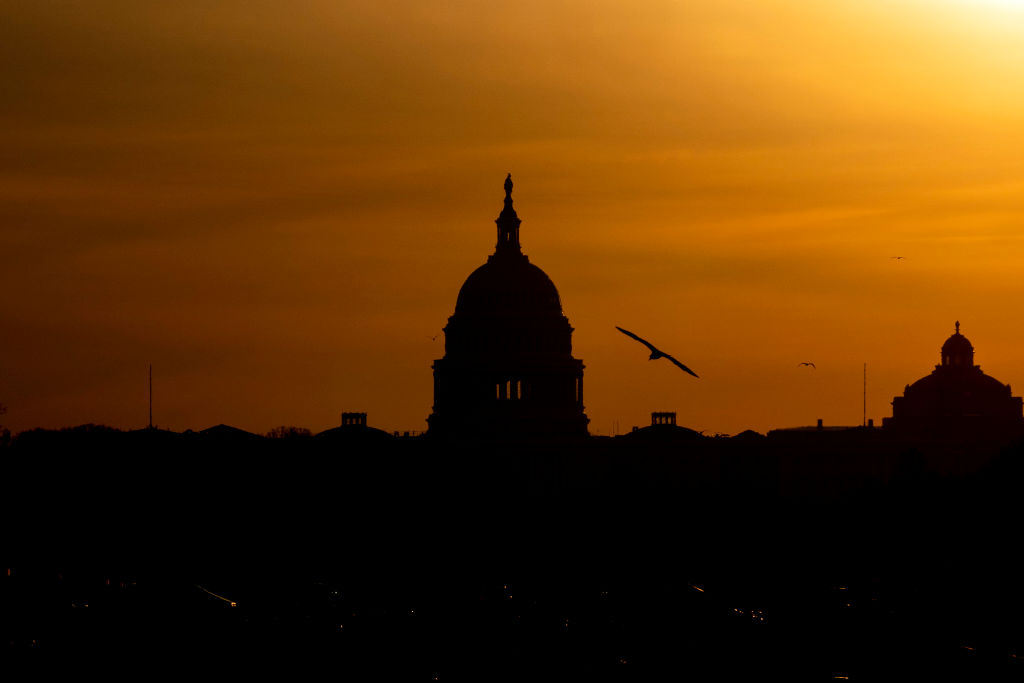The House appears unlikely to spring forward in an effort to make daylight saving time permanent, leading to the likelihood the bill will fall back into the abyss of congressional legislation.
Last week, the fractious Senate sent a bill to the House that would end the ritual of turning the clocks forward in the spring and back in the fall after Republican Sen. Marco Rubio of Florida pushed for the legislation to move forward.
But in the House, the zest to pass the bill has not yet risen to a groundswell, The Hill reported Monday.
Democratic Rep. Pramila Jayapal of Washington is among those who are not on board.
“I’ve been hearing a lot about this from my constituents recently because we’re in Seattle and it is so dark, and so if we make daylight saving permanent, it’s gonna be dark until like 9 o’clock in the morning,” she told the Hill.
Democratic Rep. Hakeem Jeffries of New York, who heads the House Democratic Caucus, said there is plenty of time to talk about time.
“Different members have articulated a different perspective. We’ll have to come to some consensus. We were unexpectedly sent this bill by the Senate. Now, we’re trying to absorb it,” Jeffries said.
Democratic Rep. John Yarmouth of Kentucky also said that House members have not had the time to think about clocks.
“I don’t know that many members have really thought through it,” Yarmouth said, adding that the House was “blindsided” when the Senate acted.
“Now what will happen is you’ll get all of this outpouring of studies and people say, ‘Yeah, we agree you shouldn’t change twice a year, but what is it, standard time or daylight time?’ And then you get the farm bureaus and the parents associations,” he said, adding that the “longer it goes, the chances of passage decline.”
The proposal drew the attention of many on Twitter.
Anyone promising permanent #DaylightSavingTime, hear this: you will regret it.
Waking in the dark for months on end sucks.
Getting kids up & off to daycare/school in the dark sucks.
Studies & real-world experience recommend permanent Standard Time.
Don’t say you weren’t warned.— David Chernushenko ???? (@chernushenko) March 17, 2022
Should the House vote to make daylight saving time permanent?
It’s time to end the nonsense that is #DaylightSavingTime. It feels like an old never wear white after Labor Day rule that just doesn’t apply in today’s world. Give us one more fallback in November to standard time and then never mess with our clocks again.
— James Bramble (@BrambleJim) March 13, 2022
This week, the Senate passed a bill to make #DaylightSavingTime permanent. I applaud the effort to end resetting clocks, but as a neuroscientist with expertise in this area, we should make standard time — winter time — permanent instead. Here’s why?:
— Gene Block (@UCLAchancellor) March 16, 2022
David Prerau, who wrote “Seize the Daylight: The Curious and Contentious Story of Daylight Saving Time,” said a 1970s experiment with year-round daylight time irked more people than it pleased.
“All of a sudden, everybody realized that they didn’t like it at all. It made the mornings very, very dark. All of the sunrises were an hour later than it would have been,” Prerau told the Hill.
“Many, many people were getting up into pitch dark, going to work in the pitch dark, which they disliked. And they also disliked sending their kids to school in the dark, having to walk on dark country roads … so it became very unpopular very quickly,” he said.
As noted by WMAQ-TV in Chicago, daylight saving time began in Germany during World War I and was briefly adopted by the U.S. in 1918. It returned in 1942 as a wartime measure and remained in effect until 1945.
In 1966, daylight time was codified to begin in April and end in October, limits that have since been adjusted by various Congresses. Most states abide by the ritual, except for Arizona and Hawaii.
This article appeared originally on The Western Journal.















 Continue with Google
Continue with Google